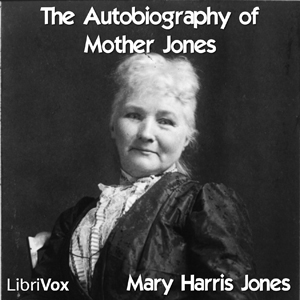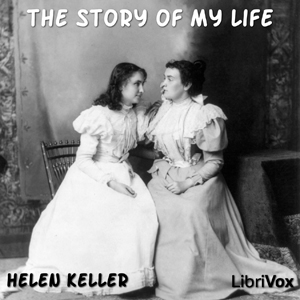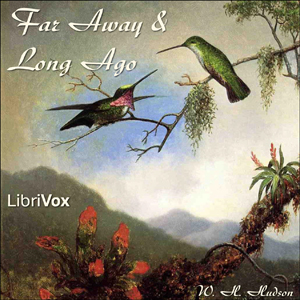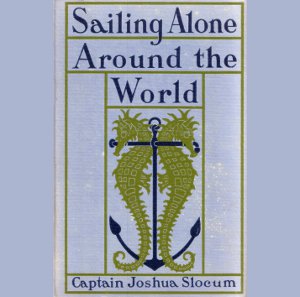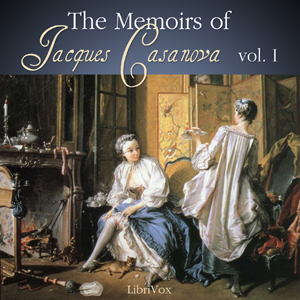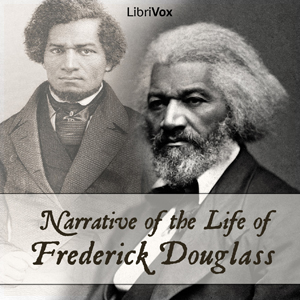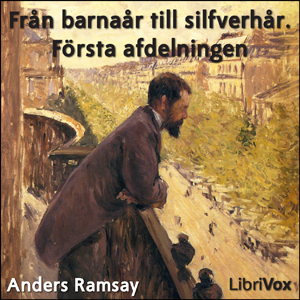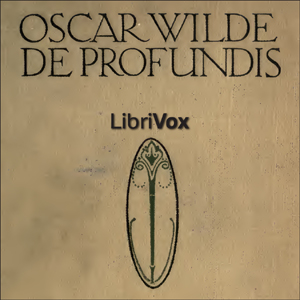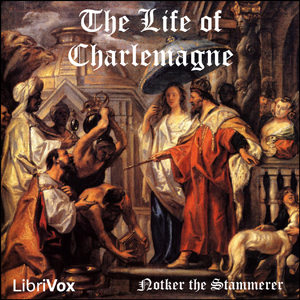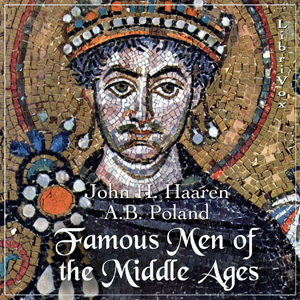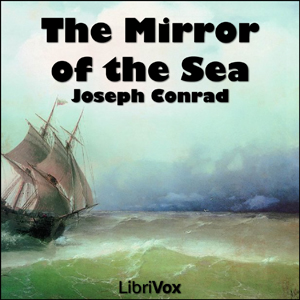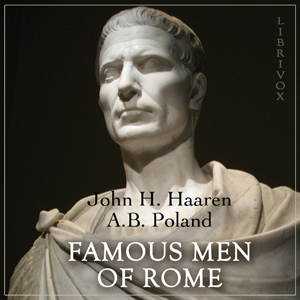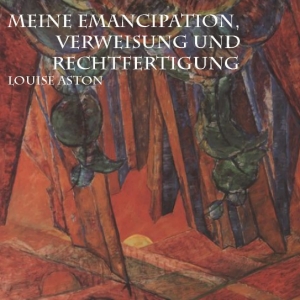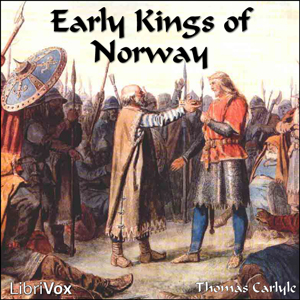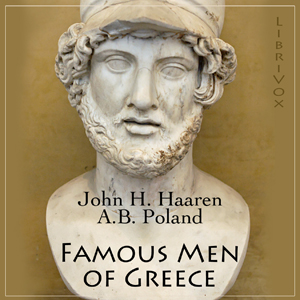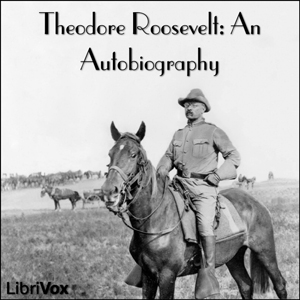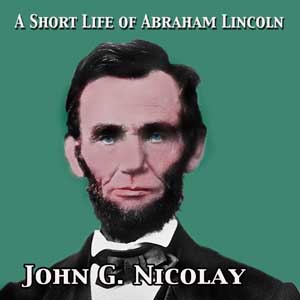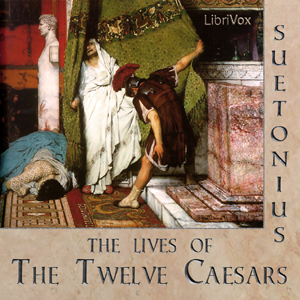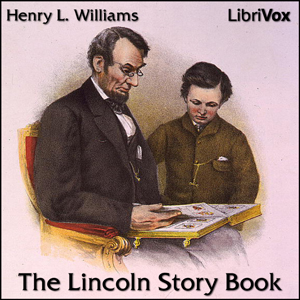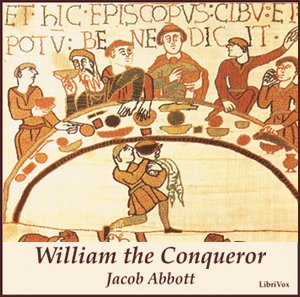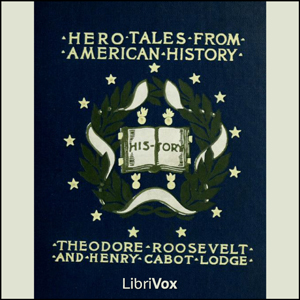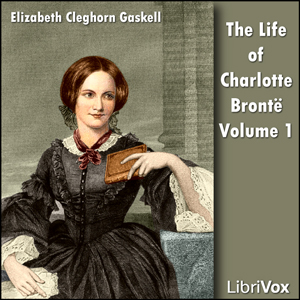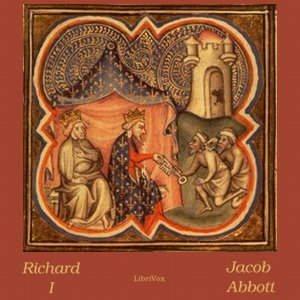This is a true account by American woman journalist who, in 1889, set out to see whether she could beat the fictional journey in Jules Verne’s 1873 novel, Around the World in Eighty Days. Wearing one dress and carrying one handbag, Elizabeth Cochrane Seaman (pen name “Nellie Bly”), reported her travels back to avid readers in America. (Summary by Mary Reagan)
18 episodes
Childhood (Детство [Detstvo]; 1852) is the first novel in Leo Tolstoy’s autobiographical trilogy. They are the works that launched his writing career. These books earned him instant acclaim. This book describes the major physiological decisions of boyhood that all boys experience.
(Summary by Wikipedia)
28 episodes
Mother Jones (Mary Harris Jones) was a legendary labor organizer. She was a founding member of the International Workers of the World (the IWW, or the Wobblies), and was active in the United Mine Workers and the Socialist Party of America. (Summary by Denny)
27 episodes
William Dean Howells (1837-1920) became fast friends with Mark Twain from the moment in 1869 when Twain strode into the office of The Atlantic Monthly in Boston to thank Howell, then its assistant editor, for his favorable review of Innocents Abroad. When Howells became editor a few years later, The Atlantic Monthly began serializing many of Twain's works, among them his non-fiction masterpiece, Life on the Mississippi. In My Mark Twain, Howells pens a literary memoir that includes such fascinating scenes as their meetings with former president Ulysses Grant who was then writing the classic autobiography that Twain would underwrite in the largest publishing deal until that time. But it is also notable for its affectionate descriptions of his friend's family life during Howell's many visits to the Twain residences in Hartford and Stormfield. (Summary by Dennis Sayers).
24 episodes
Lärm. Lärm. Lärm. Kaum, dass man sich konzentrieren kann, kaum, dass man ihm entfliehen. Lärm, der allgegenwärtige…
1 episodes
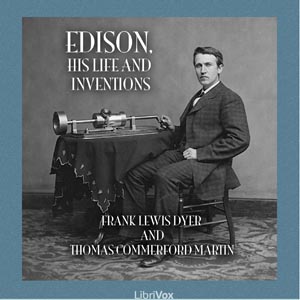
A detailed biography of Thomas Alva Edison, inventor of such things as the telephone, the microphone, the electric motor, the storage battery, and the electric light. In the words of the authors, "It is designed in these pages to bring the reader face to face with Edison; to glance at an interesting childhood and a youthful period marked by a capacity for doing things, and by an insatiable thirst for knowledge; then to accompany him into the great creative stretch of forty years, during which he has done so much. This book shows him plunged deeply into work for which he has always had an incredible capacity, reveals the exercise of his unsurpassed inventive ability, his keen reasoning powers, his tenacious memory, his fertility of resource; follows him through a series of innumerable experiments, conducted methodically, reaching out like rays of search-light into all the regions of science and nature, and finally exhibits him emerging triumphantly from countless difficulties bearing with him in new arts the fruits of victorious struggle." (written by Justin Barrett, with authors' quote taken from the work itself)
53 episodes
The Story of My Life is a personal account of Helen Keller's life, from her early days to those as an adult. It includes how she came to meet her teacher Ann Sullivan, and learnt to communicate using the manual alphabet. It then goes on to chronicle her days as a college student. (Summary by Maria)
23 episodes
William Henry Hudson was an author, naturalist and ornithologist. Hudson was born of U.S. parents living in the Quilmes Partido in Buenos Aires Province, Argentina, where he spent his youth studying the local flora and fauna and observing both natural and human dramas on what was then a lawless frontier. 'Far Away and Long Ago' is a classic memoir of a boy, fascinated by nature, on the Pampas in the 19th century.
24 episodes
Boswell's Life of Samuel Johnson is widely considered to be the greatest English-language biography ever written. It was revolutionary in its efforts to represent Johnson as he was, celebrating his flaws as well as his genius, and in Boswell's decision to represent Johnson primarily by quoting his writings and relating personal anecdotes rather than relying on matters of public record. From the time of its publication till now, The Life of Johnson has been one of the most popular and influential books ever written. (Summary by Kirsten Ferreri.) N.B. This recording does not include the Preface, Appendices and Footnotes.
32 episodes
Joshua Slocum was the first man to sail around the world alone in a small boat. He personally rebuilt an 11.2 metre sloop-rigged fishing boat that he named the Spray. On April 24, 1895, he set sail from Boston, Massachusetts. More than three years later, he returned to Newport, Rhode Island, on June 27, 1898 having circumnavigated the world, a distance of 46,000 miles (74,000 km).
In 1899 he described the voyage in Sailing Alone Around the World now considered a classic of travel literature. It is a wonderful adventure story from the Age of Sail and a book of which Arthur Ransome declared, "boys who do not like this book ought to be drowned at once". (Summary by Alan Chant and Wikipedia)
22 episodes
This is the first of five volumes. - Giacomo Casanova (1725 in Venice – 1798 in Dux, Bohemia, now Duchcov, Czech Republic) was a famous Venetian adventurer, writer, and womanizer. He used charm, guile, threats, intimidation, and aggression, when necessary, to conquer women, sometimes leaving behind children or debt. In his autobiography Histoire de ma vie (Story of My Life), regarded as one of the most authentic sources of the customs and norms of European social life during the 18th century, he mentions 122 women with whom he had sex.
Although he is often associated with Don Juan because both seduced many women, Casanova is in fact very different from his fictitious counterpart. While Don Juan is a legend, Casanova is a historical character. (Summary from Wikipedia)
43 episodes
At the age of 19 in 1902, MacLane published her first book, The Story of Mary MacLane. It sold 100,000 copies in the first month and was popular among young girls, but was strongly criticized by conservative readers, and lightly ridiculed by H.L. Mencken. She had always chafed at living in Butte, which was a small mining town, and used the money from sales of this book to move to Greenwich Village where she continued to write books and newspaper articles.
Some critics have suggested that even by today's standards, MacLane's writing is raw, honest, unflinching, self-aware, sensual and extreme. She wrote openly about egoism and her own self-love, about sexual attraction and love for other women, and even about her desire to marry the devil. (Summary from Wikipedia)
16 episodes
Elizabeth Cady Stanton was one of the premier movers in the original women’s rights movement, along with Susan B. Anthony, her best friend for over 50 years. While Elizabeth initially stayed home with her husband and many babies and wrote the speeches, Susan went on the road to bring the message of the women’s rights movement to an often hostile public. When black men were given the vote in 1870, Susan and Elizabeth led the women’s rights establishment of the time to withhold support for a bill that would extend to black men the rights still denied for women of all colors. The two women worked for over 50 years on the women’s rights cause, yet neither lived to see women get the right to vote when it finally came in 1920.Elizabeth begins her memoirs with this quotation, "Social science affirms that woman's place in society marks the level of civilization", and dedicates this book to “Susan B. Anthony, my steadfast friend for half a century." (Summary by Becky Miller)
28 episodes
Narrative of the Life of Frederick Douglass is a memoir and treatise on abolition written by famous orator and ex-slave, Frederick Douglass. It is generally held to be the most famous of a number of narratives written by former slaves during the same period. In factual detail, the text describes the events of his life and is considered to be one of the most influential pieces of literature to fuel the abolitionist movement of the early 19th Century in the United States. (Summary by Jeanette)
14 episodes
Franklin wrote his autobiography in the form of an extended letter to his son. While recording the events of his life, he adds instructions for good living which makes this work America’s first “How to Succeed” book. Edited by Frank Woodworth Pine (1869-1919). (Summary by Gary)
21 episodes

Nat Love was born a slave, emancipated into abject poverty, grew up riding the range as a cowboy and spent his maturity riding the rails as a Pullman Porter. For me, the most amazing thing about him is that despite the circumstances of his life, which included being owned like a farm animal solely because of the color of his skin and spending later decades living and working as an equal with white coworkers, he was an unrepentant racist! Convinced that the only good Indian was a dead one, and that all Mexicans were "greasers" and/or "bums," he rarely passed up a chance to shoot a member of either group, whether in self-defense or cold blood, and shows no sign of having appreciated the difference. At one point, he fell in love with a Mexican girl but, apparently unable to tolerate this reality, considered her "Spanish." Nat Love was a fascinating character who lived in equally interesting times, and one only wishes his autobiography was much longer and more detailed. summary by ohsostrange
22 episodes
Alexander the Great was one of the most successful military commanders in history, and was undefeated in battle. By the time of his death, he had conquered most of the world known to the ancient Greeks.Alexander the Great is one of many biographies aimed at young people written by Jacob Abbott and his brother. The biographies are written in such a way that makes them appealing and easily accessible to everyone. - Written by Wikipedia and Lizzie Driver
12 episodes
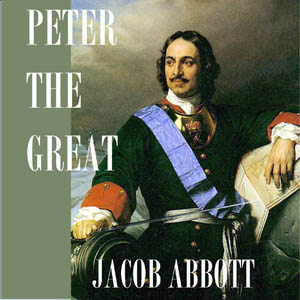
There are very few persons who have not heard of the fame of Peter the Great, the founder, as he is generally regarded by mankind, of Russian civilization. The celebrity, however, of the great Muscovite sovereign among young persons is due in a great measure to the circumstance of his having repaired personally to Holland, in the course of his efforts to introduce the industrial arts among his people, in order to study himself the art and mystery of shipbuilding, and of his having worked with his own hands in a ship-yard there. The little shop where Peter pursued these practical studies still stands in Saardam, a ship-building town not far from Amsterdam. The building is of wood, and is now much decayed; but, to preserve it from farther injury, it has been incased in a somewhat larger building of brick, and it is visited annually by great numbers of curious travelers.The whole history of Peter, as might be expected from the indications of character developed by this incident, forms a narrative that is full of interest and instruction for all.
(from the Preface of Peter the Great)
20 episodes
"Från barnaår till silfverhår" (From childyears to silverhairs) by Anders Ramsay (1832-1910) is one of the most widely read autobiographies of Fenno-swedish literature. Anders Ramsay's eight volumes offer a great wealth of information about aristocratic life in 19th century Finland, as well as of life in Paris, on the grand tour in Italy and so on. Ramsay's style of writing is free and full of delightful humour -- often at the author's own expense. His life is also a good illustration of the process of industrialisation in Finland, as well as of the triumph of the capitalist spirit over older, aristocratic values. Born a nobleman and landowner, Ramsay felt forced to become an industrialist, but failed miserably. He then went into business, where he failed as completely. However, his autobiography, written at the very end of his life, became a huge critical and popular success, to his immense joy and pride. (Summary by Måns Broo)
19 episodes
G. K. Chesterton was a great admirer of Charles Dickens, and wrote a noted critique of Dickens' works expressing his opinion in his own inimitable style. (Summary by Karen Merline)
12 episodes
This short work of Wilde's was written during his two year incarceration for "gross indecency". This work is a letter which sorts out his life, and his love toward Lord Alfred Douglas. Wilde wrote this as a farewell letter to Douglas. (summary by Aaron Elliott)
NOTE: "Transcribed from the 1913 Methuen & Co. edition Note that later editions of De Profundis contained more material. The most complete editions are still in copyright in the U.S.A."
4 episodes
Notker's work consists of anecdotes relating chiefly to the Emperor Charlemagne and his family. It was written for Charles the Fat, great-grandson of Charlemagne, who visited Saint Gall in 883. Traditionally, it has been scorned by traditional historians, who refer to the Monk as one who "took pleasure in amusing anecdotes and witty tales, but who was ill-informed about the true march of historical events". However, several of the Monk's tales, such as that of the nine rings of the Avar stronghold, have been used in modern biographies of Charlemagne. (Summary abstracted from Wikipedia by Karen Merline.)
9 episodes
“THE study of history, like the study of a landscape, should begin with the most conspicuous features. Not until these have been fixed in memory will the lesser features fall into their appropriate places and assume their right proportions.
The famous men of ancient and modern times are the mountain peaks of history. It is logical then that the study of history should begin with the biographies of these men.
Not only is it logical; it is also pedagogical. Experience has proven that in order to attract and hold the child’s attention each conspicuous feature of history presented to him should have an individual for its center. The child identifies himself with the personage presented. It is not Romulus or Herecules or Alexander that the child has in mind when be reads, but himself, acting under similar conditions.”
(Excerpt from the Preface of “Famous Men of the Middle Ages”)
34 episodes
The Mirror of the Sea (collection of autobiographical essays first published in various magazines 1904-6 ), 1906 (Summary from Wikipedia)
16 episodes
Biographical sketches of the men of Rome, written for children. (summary by Laura Caldwell)
30 episodes
1845, Louise Aston lebt als geschiedene Frau in Berlin und bewegt sich in intellektuellen Kreisen. Sie raucht in der Öffentlichkeit und trägt Männerkleider. Anonyme Beschwerden über sie führen zu polizeilicher Überwachung. Schließlich wird sie als "staatsgefährliche Person" aus Berlin ausgewiesen.
In ihrem 1846 erschienen Buch "Meine Emancipation, Verweisung und Rechtfertigung" legt sie ihren Fall der deutschen Öffentlichkeit vor und plädiert leidenschaftlich für die Gleichheit der Geschlechter und das Recht der Frau auf freie Entfaltung ihrer Persönlichkeit. (Summary by Hokuspokus)
3 episodes
Biographies of Raphael Santi, Murillo, Peter Paul Rubens, and Albrecht Durer. This is a wonderful tool for art study as there are references for further study, as well as ideas for language arts to incorporate into the study. Summary by Laura Caldwell
5 episodes
"The Icelanders, in their long winter, had a great habit of writing; and were, and still are, excellent in penmanship. It is to this fact, that any little history there is of the Norse Kings and their old tragedies, crimes and heroisms, is almost all due. The Icelanders, it seems, not only made beautiful letters on their paper or parchment, but were laudably observant and desirous of accuracy; and have left us such a collection of narratives (Sagas, literally "Says") as, for quantity and quality, is unexampled among rude nations. Snorro Sturleson's History of the Norse Kings is built out of these old Sagas; and has in it a great deal of poetic fire, . . . and deserves to be reckoned among the great history-books of the world. It is from these sources that the following rough notes of the early Norway Kings are hastily thrown together." (Excerpted from Thomas Carlyle's preface by Karen Merline)
10 episodes
Grace Abounding is the spiritual autobiography of John Bunyan, who also penned Pilgrim’s Progress, perhaps one of the most significant pieces of Christian literature, second only to the Bible. Grace Abounding follows Bunyan’s struggle to find true repentance and forgiveness, his battle with Satan’s temptations of unbelief, his comfort found in the Bible and his overarching victory gotten by the grace of God through Jesus Christ his Son. Readers familiar with Pilgrim’s Progress will recognize that many of the allegorical points in his famous work came out of Bunyan’s own struggles and discoveries, and it has been said that Bunyan could not have written Pilgrim’s Progress without first going through the battles chronicled in Grace Abounding. (Summary by Stephen Escalera)NOTE: Paragraphs 319-339 from "A Brief Account of the Author’s Imprisonment" are omitted from the e-text, and are therefore omitted from this recording.
10 episodes
Famous Men of Greece is a series of biographical sketches written for the purpose of making the study of history lively and interesting by giving insight into the men who lived during this time. (Summary by Laura Caldwell)
33 episodes
In his vital, illustrative and dynamic autobiography, Theodore Roosevelt let us into the life that formed one of the greatest and outspoken presidents in American history. Not only are we privy to the formation of his political ideals, but also to his love of the frontier and the great outdoors. (Summary from Bartleby.com)
50 episodes
John G. Nicolay was Abraham Lincoln’s private White House secretary. With assistant secretary, John Hay, he wrote the two volume definitive biography of Lincoln, "Abraham Lincoln, a Biography." Although this is a condensation by Nicolay of that biography, it is still a sizable work and a fairly thorough treatment of the life of the 16th president of the United States. (Summary by John Lieder)
38 episodes
A life of King Alfred of England originally composed in Latin, possibly sometime around 888 A.D. by the Monk and Bishop Asser, although some scholars contend that the work was actually composed much later by an unknown hand. (Summary by Douglas B. Killings)
7 episodes
A biography of the famous Cleopatra of Egypt, written in a manner, equally interesting to children and to adults.
12 episodes

In this biography for young adults, Mary A. Hamilton gives a British person’s perspective on the 16th President of the United States. A glowing tribute to “Honest Abe”, the author traces Lincoln’s ancestral roots and recounts his birth in Kentucky, his youth in Indiana, his adult life in Illinois and his years in the White House. She also provides a good background on the causes and course of the American Civil War.
Hamilton is not always historically precise. For example, she erroneously names Jefferson Davis as the Southern Democratic candidate for president running against Lincoln and Douglas in 1860 rather than John C. Breckinridge. However, overall “The Story of Abraham Lincoln” is a good summarization and interesting account of the life, values and politics of Lincoln.
Cautions: Chapter 7 contains a single use of an epithet for African-Americans in a quotation from a British magazine. Chapter 8 ends with an example of a stereotypical Southern black dialect which many may find offensive. (Summary by John Lieder.)
9 episodes
Jeanne-Marie Bouvier de la Motte-Guyon (commonly known as Madame Guyon) (April 13, 1648 - June 9, 1717) was a French mystic and one of the key advocates of Quietism. Quietism was considered heretical by the Roman Catholic Church, and she was imprisoned from 1695 to 1703 after publishing a book on the topic, A Short and Easy Method of Prayer. This translation is by Thomas Taylor Allen was first published in 1897. Allen's dates are unknown. (Summary from Wikipedia.)
51 episodes

Chesterton and Shaw were famous friends and enjoyed their arguments and discussions. Although rarely in agreement, they both maintained good-will towards and respect for each other. However, in his writing, Chesterton expressed himself very plainly on where they differed and why. In Heretics he writes of Shaw:
“After belabouring a great many people for a great many years for being unprogressive, Mr. Shaw has discovered, with characteristic sense, that it is very doubtful whether any existing human being with two legs can be progressive at all. Having come to doubt whether humanity can be combined with progress, most people, easily pleased, would have elected to abandon progress and remain with humanity. Mr. Shaw, not being easily pleased, decides to throw over humanity with all its limitations and go in for progress for its own sake. If man, as we know him, is incapable of the philosophy of progress, Mr. Shaw asks, not for a new kind of philosophy, but for a new kind of man. It is rather as if a nurse had tried a rather bitter food for some years on a baby, and on discovering that it was not suitable, should not throw away the food and ask for a new food, but throw the baby out of window, and ask for a new baby.”
Shaw represented the new school of thought, humanism, which was rising at the time. Chesterton's views, on the other hand, became increasingly more focused towards the church. In Orthodoxy he writes:
“The worship of will is the negation of will. . . If Mr. Bernard Shaw comes up to me and says, "Will something," that is tantamount to saying, "I do not mind what you will," and that is tantamount to saying, "I have no will in the matter." You cannot admire will in general, because the essence of will is that it is particular. (Summary from Wikipedia)
14 episodes
The Twelve Caesars is a set of twelve biographies of Julius Caesar and the first 11 emperors of the Roman Empire. The work was written in 121 during the reign of the emperor Hadrian, while Suetonius was Hadrian's personal secretary. On the Life of the Caesars concentrates on the acts and personalities of the Julio-Claudians and their immediate successors. Together with Tacitus' Annals, this work is a major source for the historical details in Robert Graves' novels "I Claudius" and "Claudius the God". (Summary adapted from Wikipedia by Karen Merline.)
39 episodes
Albert Bigelow Paine was Samuel Langhorne Clemens' (Mark Twain's) biographer. He lived with Twain, collecting ideas and material for a biography, for a few years before Twain's death in 1910. Six years later Paine published this "story of a man who made the world laugh and love him".
For those who have read or listened to Mark Twain's works, Paine's work is an invaluable resource to better understand Twain, the stories behind his stories and his life with those he loved and with whom he worked. (Summary by John Greenman)
71 episodes
Claus Beckera, besser bekannt als Claus Störtebeker, war schon zu Lebzeiten eine Legende: Gemeinsam mit Heino Wichmann und Gödeke Michael kämpfte er im 14. Jahrhundert als Vitalienbruder für die Gerechtigkeit und versuchte die Adligen zu stürzen und den Armen helfend unter die Arme zu greifen. Georg Engel erzählt den Werdegang Störtebekers von seiner Kindheit bis zum seiner Hinrichtung im Jahre 1402 in Hamburg.
21 episodes
Authentic Narratives of the Most Celebrated Sea Robbers.
31 episodes
Subtitle: A Judicious Collection of the Best Stories and Anecdotes of the Great President, Many Appearing Here for the First Time in Book Form - compiled by Henry L. WilliamsThe Abraham Lincoln Statue at Chicago is accepted as the typical Westerner of the forum, the rostrum, and the tribune, as he stood to be inaugurated under the war-cloud in 1861. But there is another Lincoln as dear to the common people--the Lincoln of happy quotations, the speaker of household words. Instead of the erect, impressive, penetrative platform orator we see a long, gaunt figure, divided between two chairs for comfort, the head bent forward, smiling broadly, the lips curved in laughter, the deep eyes irradiating their caves of wisdom; the story-telling Lincoln, enjoying the enjoyment he gave to others. (from the preface of the book)
This is so big it took two pages on Internet Archive to store it all (Part 1 has 01 - 255 and part 2 has 256-391).
391 episodes
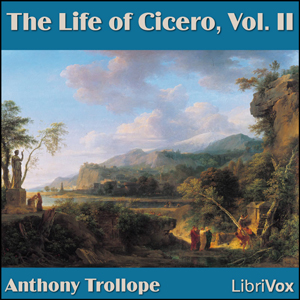
Marcus Tullius Cicero (106-43BC) was an orator, statesman, philosopher and prolific correspondent, who rose as a ‘new man’ in Rome in the turbulent last years of its republican government. Anthony Trollope, best known as a novelist, admired Cicero greatly and wrote this biography late in life in order to argue his virtues against authors who had granted him literary greatness but questioned his strength as a politician and as a man. He takes a personal approach, affording us an insight into his own mind and times as well as those of his subject. This second volume of two covers his last years, BC 57-43 and the personal and political upheavals that surrounded them: the civil war between Caesar and Pompey, the death of his daughter Tullia, Caesar's dictatorship and assassination, Cicero's antagonism against Antony in the Philippics and his final struggle for the republic. Having used Cicero's letters and speeches to guide his biography, Trollope treats his other works (what he terms 'moral essays', and works on philosophy and rhetoric), and his religious beliefs, in separate chapters at the end of this volume, to which is also appended his own translation of Cicero's 'Dream of Scipio' from the De re publica.
(Summary by Philippa)
22 episodes
There are certain names which are familiar, as names, to all mankind; and every person who seeks for any degree of mental cultivation, feels desirous of informing himself of the leading outlines of their history, that he may know, in brief, what it was in their characters or their doings which has given them so widely-extended a fame. Consequently, great historical names alone are selected; and it has been the writer's aim to present the prominent and leading traits in their characters, and all the important events in their lives, in a bold and free manner, and yet in the plain and simple language which is so obviously required in works which aim at permanent and practical usefulness. This volume is dedicated to William the Conqueror. (Summary from the preface of the book)
12 episodes

The Confessions outlines Augustine's sinful youth and his conversion to Christianity. It is widely seen as the first Western autobiography ever written, and was an influential model for Christian writers throughout the following 1,000 years, through the Middle Ages. It is not a complete autobiography, as it was written in his early 40s, and he lived long afterwards, producing another important work (City of God). It does, nonetheless, provide an unbroken record of his development of thought and is the most complete record of any single person from the 4th and 5th centuries. It is a significant theological work, featuring spiritual meditations and insights. It begins:"GREAT art Thou, O Lord, and greatly to be praised; great is Thy power, and Thy wisdom infinite. And Thee would man praise; man, but a particle of Thy creation; man, that bears about him his mortality, the witness of his sin, the witness, that ]Thou, O God, resistest the proud: yet would man praise Thee; he, but a particle of Thy creation. Thou awakes us to delight in Thy praise; for Thou madest us for Thyself, and our heart is restless, unless it repose in Thee.” (Summary from Wikipedia and Book I, Chapter I.)
32 episodes
There are certain names which are familiar, as names, to all mankind; and every person who seeks for any degree of mental cultivation, feels desirous of informing himself of the leading outlines of their history, that he may know, in brief, what it was in their characters or their doings which has given them so widely-extended a fame. Consequently, great historical names alone are selected; and it has been the writer's aim to present the prominent and leading traits in their characters, and all the important events in their lives, in a bold and free manner, and yet in the plain and simple language which is so obviously required in works which aim at permanent and practical usefulness. This volume is dedicated to Queen Elizabeth. (Summary from the preface of the book)
12 episodes
Its purpose … is to tell in simple fashion the story of some Americans who showed that they knew how to live and how to die; who proved their truth by their endeavor; and who joined to the stern and manly qualities which are essential to the well-being of a masterful race the virtues of gentleness, of patriotism, and of lofty adherence to an ideal.It is a good thing for all Americans … to remember the men who have given their lives in war and peace to the service of their fellow-countrymen, and to keep in mind the feats of daring and personal prowess done in time past by some of the many champions of the nation in the various crises of her history. (Summary from the book’s dedication.)
26 episodes
Charlotte Brontë was a British author, the eldest of the three famous Brontë sisters who have become standards of English literature. She is best known for her novel Jane Eyre, one of the greatest classics of all time. Just two years after Charlotte's death, her friend Elizabeth Gaskell wrote her biography. Want to know more about Charlotte Brontë? If you do, please read this biography. Summary by Stav Nisser.
A recording of Volume 2 of this work is also available.
20 episodes
There are certain names which are familiar, as names, to all mankind; and every person who seeks for any degree of mental cultivation, feels desirous of informing himself of the leading outlines of their history, that he may know, in brief, what it was in their characters or their doings which has given them so widely-extended a fame. Consequently, great historical names alone are selected; and it has been the writer's aim to present the prominent and leading traits in their characters, and all the important events in their lives, in a bold and free manner, and yet in the plain and simple language which is so obviously required in works which aim at permanent and practical usefulness. This volume is dedicated to Richard I. (Summary from the preface of the book)
22 episodes
The journal of nature-lover John Muir who spent the summer of 1869 walking California’s Sierra Nevada range. From French Bar to Mono Lake and the Yosemite Valley, Muir was awestruck by everything he saw. The antics of the smallest “insect people” amazed him as much as stunted thousand-year old Juniper trees growing with inconceivable tenacity from tiny cracks in the stone. Muir spent the rest of his life working to preserve the high Sierra, believing that “the clearest way into the Universe is through a forest wilderness.” John Muir (1838-1914) was born in Dunbar, Scotland and grew up in Wisconsin, USA. This recording commemorates the 140th anniversary of that first summer. (Summary by Adrian Praetzellis)
15 episodes


